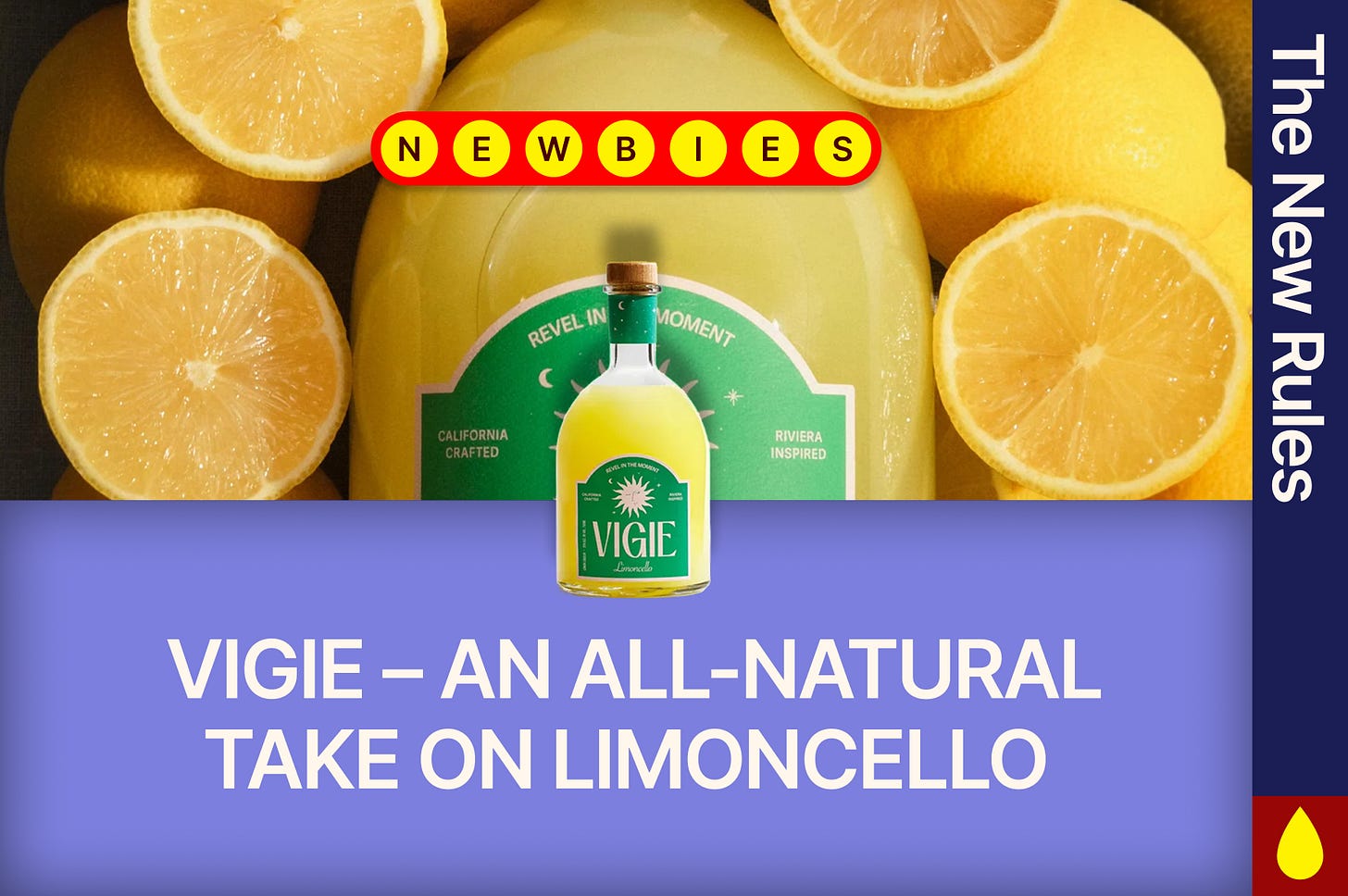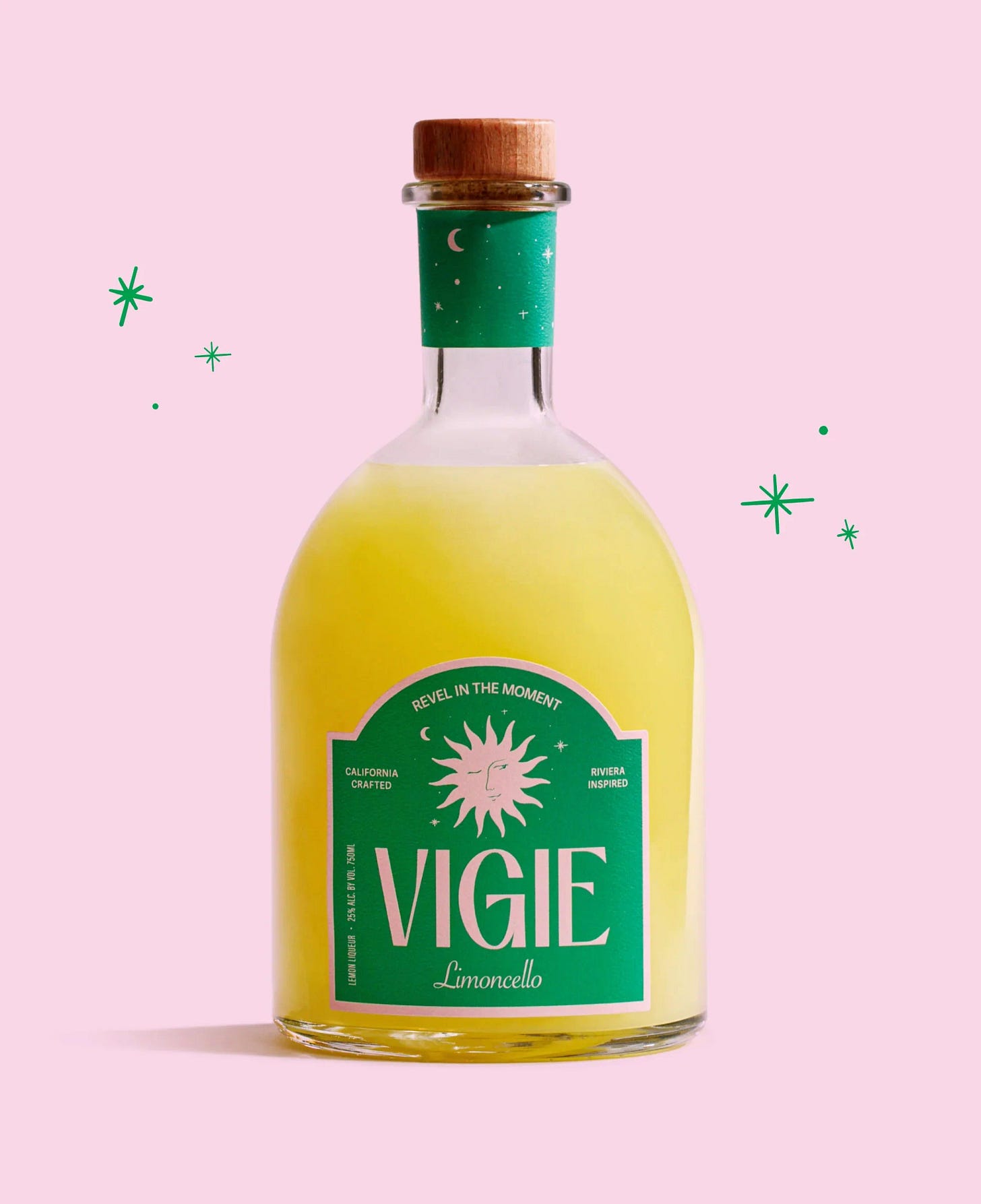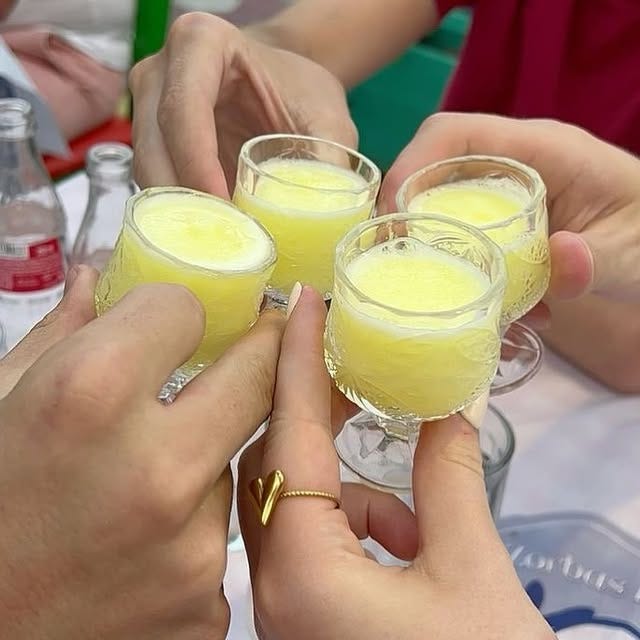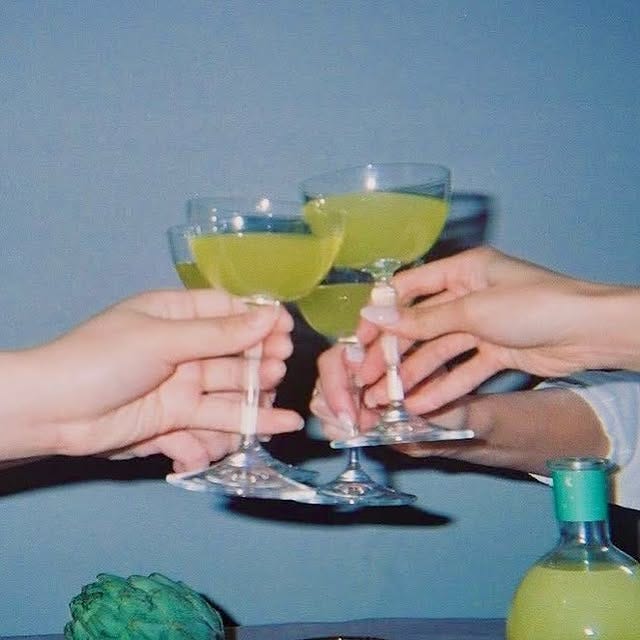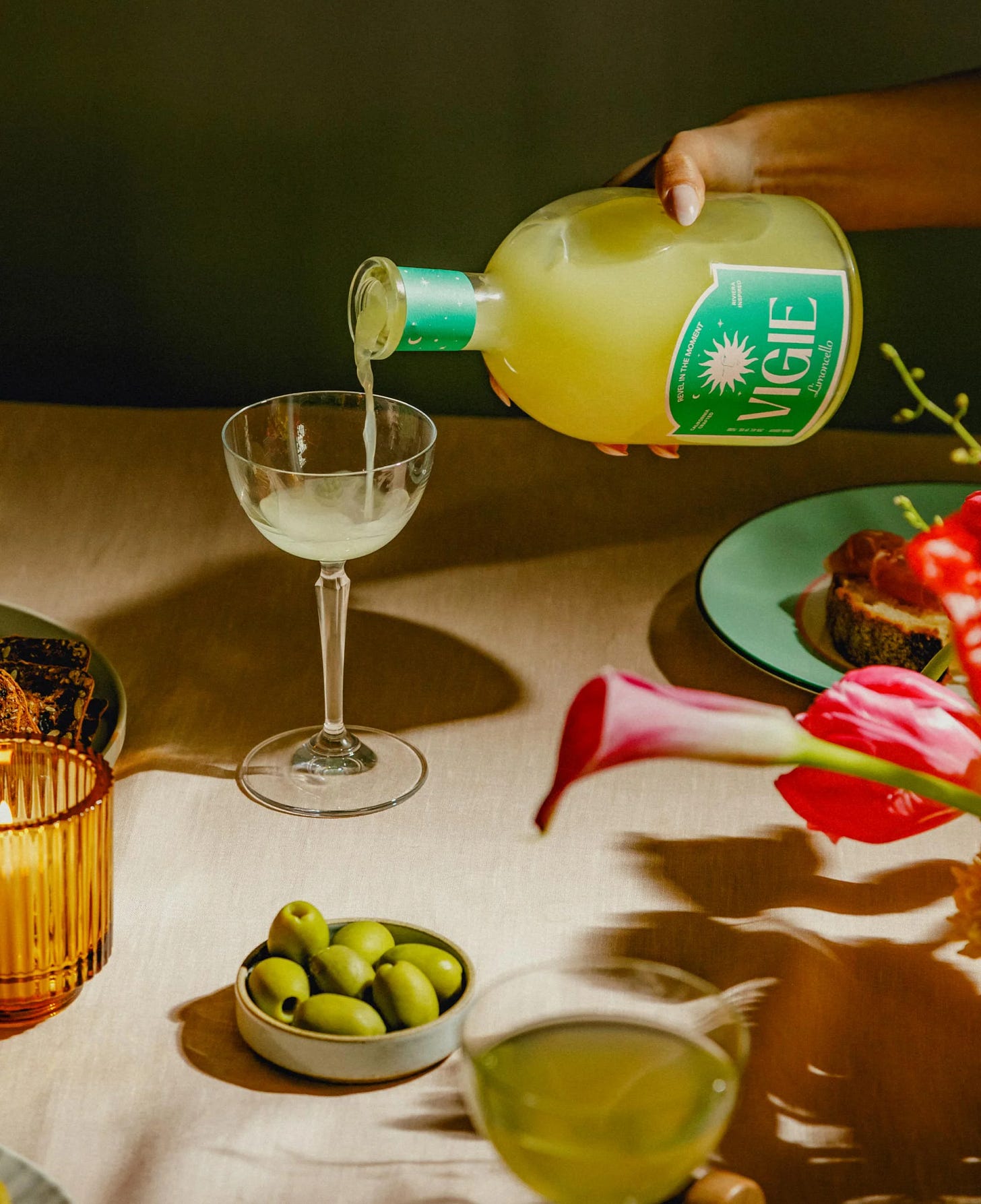NEWBIES: Vigie – an all-natural take on limoncello
Founder Samaria O'Brien is tapping into the spritz spirit with a brand that's part tradition, and part bar cart-friendly branding. Oh, and a recipe that goes all the way back.
NEWBIES is our way of introducing you to up-and-coming brands doing interesting things. We’ll share quick profiles on how they’re building their businesses and what they’ve learned along the way. If you like this and other features on brand-building in the bev/alc space, we’d love you to subscribe.
Vigie is an all-natural limoncello that’s made in California using a tried-and-tested family recipe. It’s a slightly lower ABV than many other limoncellos, which means it pairs well with Prosecco, mixers and spirits and, according to founder Samaria O’Brien, makes it popular for adding to desserts and salad dressings. Her quick summary of Vigie:
“An old-world recipe created for modern drinking occasions. It’s a way to honor tradition while bringing new life to a category that hasn’t seen much innovation.”
Vigie is tapping into something of a moment for limoncello in the US. What was previously a holiday novelty is now appearing on menus and as a tinned RTD option on shelves. Samaria says it’s part of a rise in spritz culture – thanks to Aperol for pouring huge sums into educating consumers – as well as a growing interest in lower-ABV cocktails, and a general desire for drinks that feel “elevated but easy”. As she says:
“Limoncello is a perfect option – it’s citrusy, bright, and doesn’t have a bitter edge.”
So, let’s get into Vigie:
The back story: lemon orchards and a family recipe
Samaria (who has a background in private equity, strategy consulting and investment banking) fell in love with limoncello in a place that must have been idyllic: her uncle’s seaside lemon orchard. He’s been making lemon liqueur using a traditional Sicilian family recipe for years, and once the two of them got together to make a batch, Samaria says she was hooked.
When she got back to the US she started looking for an all-natural limoncello but could only find syrupy versions produced by mass conglomerates, made using artificial colours. And so, Vigie was born.
Cali lemons, organic cane sugar and no artificial extras
It might follow a trad recipe, but Vigie is made using hand-zested Cali lemons, organic cane sugar and no artificial colors or flavours – which means the focus is on the zesty citrus flavor, rather than the aggressively sugary taste of a lot of mass-market limoncellos. As Samaria says:
“People are paying more attention to what’s in their drinks, and they want something that feels good to serve and sip. Vigie is meant to be sipped, mixed and spritzed.”
The journey so far: tradition, but not
Samaria says she’s had to work hard to tap into a “notoriously insular” alcoholic beverage community, which has meant experimenting to find out what works, and what lands.
“Nothing humbles you faster than being shut down by a bar manager because you didn’t explain how your product fits their cocktail menu in 20 seconds or less.”
She’s also experimented with the look and feel of Vigie. As she points out: heritage is a key part of limoncello, and even the mass-produced brands began as family recipes, so that’s an essential selling point and part of the story.
“Early on, Vigie’s branding leaned more traditional, but I realized there was a real opportunity to reimagine what limoncello could look like. I wanted something that honored tradition but felt fresh, Riviera-inspired, and modern – something that clearly indicated Vigie was different and someone would be proud to display on their bar cart or bring to a dinner party.”
What’s working? Tastings, in-person, careful spending
Vigie’s biggest wins have come from in-store tastings and restaurant placements, although the brand has also gained momentum through word-of-mouth, in-person events and good relationships with accounts. Splashy activations and creative projects are tempting, but the brand is entirely self-funded – which means Samaria is being super-strategic with time and resources, and laser-focused on putting money towards accounts that show strong sell-through.
“Right now, we’re outselling legacy limoncello brands 5:1 and selling two cases per tasting, which is almost unheard of in this category.
But DTC is a tough nut to crack
According to Samaria, the biggest challenge is cash flow and making sure every dollar goes towards the highest possible return. She’s still figuring out how to profitably and authentically scale Vigie’s online store, for example.
“DTC is tough in alcohol because of the three-tier system, shipping costs and rising digital ad prices. Success online is still possible, but it means leaning into community-driven strategies like email marketing and nurturing the funnel carefully. The goal is to build smart and raise capital once the foundation is solid.”
We asked Samaria:
1)what’s the brutal truth about building a bev/alc brand?
“It’s not just about making a great product. It’s about selling it, again and again. Getting into a store is only the beginning. You have to drive velocity, offer support, and build real relationships to stay on the shelf.”
2)and, with the wisdom of experience, is there anything you’d tell other bev/alc founders?
Don’t wait for perfect – get your product out there and start learning. Focus early on your margins and whether the product truly fits the market. And prioritize relationships. In this industry, people matter just as much as the product does.



